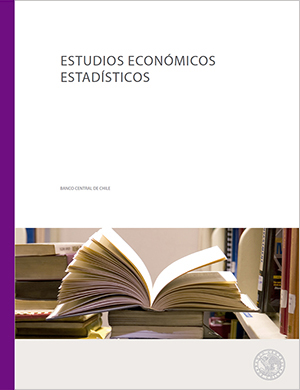Studies in Economic Statistics N° 60: Efectos de Valoración en la Posición de Inversión Internacional de España
Publications
Studies in Economic Statistics N° 60: Efectos de Valoración en la Posición de Inversión Internacional de España
Autor: Alvaro Nash B. , Arturo Macías F.
Description
Valuation effects are changes in the value of the stock of foreign assets owned by residents and in the value of the stock of liabilities held by foreigners.
The dynamics of the foreign asset position depend not only on the evolution of the net financial inflows but also on the rates of return earned on accumulated foreign assets and paid out on accumulated foreign liabilities. The magnitude of the valuation channel is directly increasing in the gross scale of the international balance sheet and the denomination of assets and liabilities.
In this paper, we provide evidence on recent trends of the valuation adjustments in the International Investment Position (IIP). In addition, we describe a methodology to capture these adjustments, splitting up the ones associated to asset prices and exchange rates, and develop a brief analysis of the revaluation effects for the main components of the IIP.
We discover that as a consequence of the country’s increased financial integration with the rest of the world, valuation adjustments have become key determinants of changes in the IIP. As a global tendency, and due to the structure and denomination of assets and liabilities, we also find that changes in exchange rates have played the most important role shaping the evolution of the net IIP.
On the aggregated-level data, by the end of 2002, there was a reduction in the net indebtedness to foreigners triggered by a positive net revaluation of about US$4,700 million. In 2003, there was a revaluation of the same magnitude, which in this case contributed to a rise in the net liability position. By the end of June 2004, we found a positive revaluation of about US$2,600 million.
Net foreign indebtedness has been concentrated in the private sector, particularly in foreign direct investment and mediumterm debt instruments. Besides, foreign direct investment in Chile has experienced the most significant revaluation effect coming from changes in exchange rates, which reached US$7,100 millions during 2003. Finally, portfolio investment has experienced the largest valuation effects arising from changes in asset prices, which in turn follow closely the movement of stock markets and international interest rates.
Studies in Economic Statistics N° 60: Efectos de Valoración en la Posición de Inversión Internacional de España
Boxes and graphics

